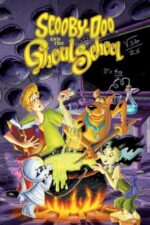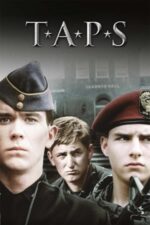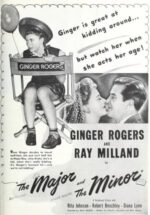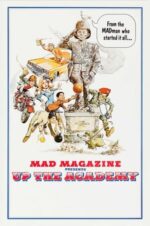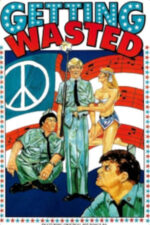Introduction: Military academies have long captured the public's imagination in film, serving as backdrops for stories that delve deep into themes of power dynamics, camaraderie, and self-discovery. From counterculture rebellion to dark secrets, these settings provide fertile ground for exploring aspects of human nature and societal expectations. In this piece, we'll explore some notable filmic representations of military academies and the myriad ways they illuminate our collective experience.
Exploring the Theme:
Getting Wasted (1975) - Directed by John Fleischer The late 1960s serve as the backdrop for this coming-of-age tale that finds a group of young rebels challenging the strict regime of their military academy. As they rally behind the revolutionary spirit of the era, they're forced to confront the status quo and grapple with personal freedom. This film masterfully weaves themes of youthful idealism and change in an era marked by profound cultural shifts.
Up the Academy (1980) - Directed by Robert Downey Sr. Four unlikely friends embark on a journey at a military academy, navigating the rigorous routine of discipline with camaraderie and shared experiences. As they forge an unbreakable bond, their friendships are tested by moments of mischief, laughter, and celebration. Through a year of transformation and self-discovery, these boys confront their individual limitations and insecurities while striving towards a common goal - becoming 'real men.'
The Long Gray Line (1955) - Directed by John Ford This film tells the inspiring true story of an Irish immigrant's fifty-year journey at the United States Military Academy at West Point. As a dedicated Noncommissioned Officer, his career is marked by life experiences that shape him as a person and leader, including intimate family moments and bonds formed with young cadets over time.
Young Törless (1966) - Directed by Volker Schlöndorff Set in an Austrian boarding school in the early 1900s, this adaptation of Robert Musil's novel presents a harrowing portrayal of teenage camaraderie pushed to its dark extremes. Törless, a thoughtful boy observing his peers' sadistic treatment of a fellow student, grapples with his own moral compass and accountability in the face of inaction.
Damien: Omen II (1978) - Directed by Don Taylor In this chilling sequel to The Omen, Damien, believed to be the Antichrist, is enrolled at a strict military academy where he plots to take control of his uncle's business empire and ultimately humanity. This suspenseful tale explores themes of power, deception, and destiny against a backdrop of one boy's quest for control.
The Major and the Minor (1942) - Directed by Billy Wilder In this heartwarming comedy-drama, Susan Applegate disguises herself as a twelve-year-old to save money on her train ticket and encounters Major Philip Kirby. As they spend time together, Susan unveils layers of herself to Major Kirby, leading to an unexpected bond between these two strangers. The film delves into themes of friendship, identity, and resilience as Susan learns life's lessons from her unlikely mentor in a journey she never anticipated.
Conclusion: Military academies offer rich territory for storytelling, providing fertile ground to explore the complexities of power dynamics, friendship, and self-discovery. From the revolutionary spirit of 'Getting Wasted' to the dark secrets lurking within 'Young Törless,' these films remind us that the human experience is as varied and nuanced as the students who walk through their gates. Whether it's the journey towards self-acceptance in 'The Major and the Minor' or the chilling ambition of 'Damien: Omen II,' each film offers a unique lens through which to view our collective humanity, making military academies more than just settings - they become characters themselves.






















